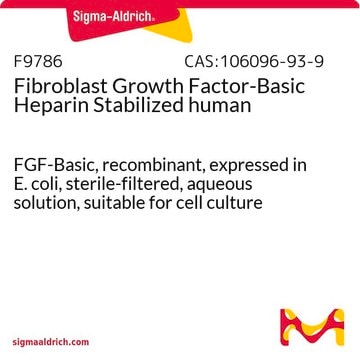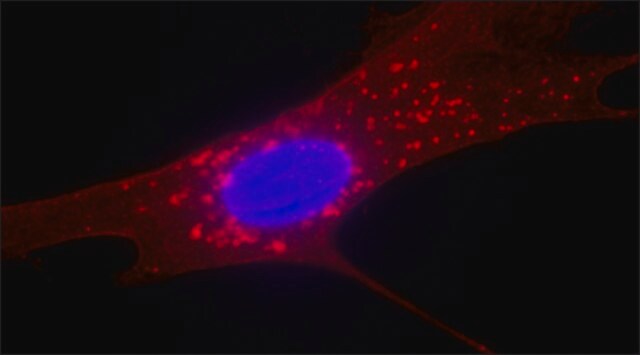F6162
Anti-Fibroblast Growth Factor-Basic antibody, Mouse monoclonal
clone FB-8, purified from hybridoma cell culture
Synonym(s):
Monoclonal Anti-Fibroblast Growth Factor-Basic antibody produced in mouse, Anti-FGF2
About This Item
Recommended Products
biological source
mouse
conjugate
unconjugated
antibody form
purified immunoglobulin
antibody product type
primary antibodies
clone
FB-8, monoclonal
form
buffered aqueous solution
mol wt
antigen 18 kDa
species reactivity
bovine, human
technique(s)
dot blot: suitable
indirect ELISA: suitable
neutralization: 5 μg/mL using 1 unit recombinant human FGF2 in mouse 3T3 cells
radioimmunoassay: suitable
western blot: suitable
isotype
IgG1
UniProt accession no.
shipped in
dry ice
storage temp.
−20°C
target post-translational modification
unmodified
Gene Information
human ... FGF2(2247)
Looking for similar products? Visit Product Comparison Guide
General description
Specificity
Immunogen
Application
- in immunoblotting
- in enzyme linked immunosorbent assay (ELISA)
- in dot blot
- in radio immune assay (RIA)
- in neutralization bioassays
Biochem/physiol Actions
Physical form
Disclaimer
Not finding the right product?
Try our Product Selector Tool.
recommended
related product
Storage Class Code
10 - Combustible liquids
WGK
WGK 3
Flash Point(F)
Not applicable
Flash Point(C)
Not applicable
Personal Protective Equipment
Certificates of Analysis (COA)
Search for Certificates of Analysis (COA) by entering the products Lot/Batch Number. Lot and Batch Numbers can be found on a product’s label following the words ‘Lot’ or ‘Batch’.
Already Own This Product?
Find documentation for the products that you have recently purchased in the Document Library.
Our team of scientists has experience in all areas of research including Life Science, Material Science, Chemical Synthesis, Chromatography, Analytical and many others.
Contact Technical Service







